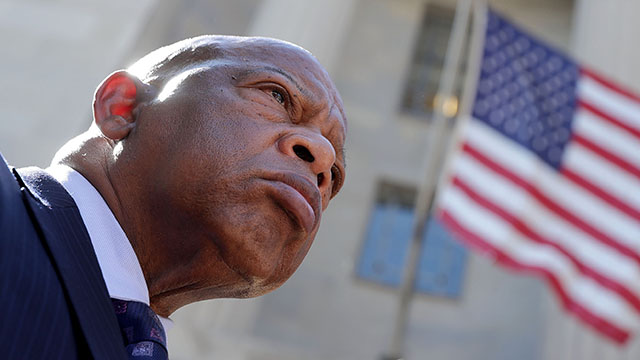John Lewis, who passed away July 17 at the age of 80, is remembered by Northwestern professors in history, political science and sociology.
Leading America’s third founding
“The passing of Rep. John Lewis (D-Georgia) means that all of the leaders of the “Big-Six” civil rights organizations that orchestrated the March on Washington in 1963 are now gone. It is important that we pause to recognize what Rep. Lewis and his generation meant to America. They were, in essence, the leaders of America’s third founding, as the laws that they fought for — the Civil Rights Act, Voting Rights Act and Fair Housing Act — empowered us to become a real democracy for the first time in our history.
"As America struggles to renew the promises of the laws that they passed and generate new visions of equality, we must remember the lessons that this founding generation taught us. Mr. Lewis will be sorely missed because he was a bridge to these lessons. Everything that he did in politics was to set an example for young Americans to pick up his mantle and continue the fight to make American a more perfect union.”
- Alvin Tillery is associate professor of political science in the Weinberg College of Arts and Sciences and director of the Center for the Study of Diversity and Democracy.
'Personified the youth wing of the civil rights movement'
“Dr. Martin Luther King Jr. personified the adult wing of the civil rights movement. John R. Lewis personified the youth wing of the civil rights movement. The synergy between these two wings generated the power and moral courage that made the civil rights movement a great transformative force in America and the world. Lewis was only 20 years old in 1960 when he and other students initiated dangerous sit-ins to desegregate Nashville, Tennessee’s lunch counters. From the outset, Lewis was a courageous, dedicated, dignified and committed leader. He was humble beyond measure, and he cared deeply about all people, even white segregationists, who beat him unmercifully as he protested for social justice.
"To him, his activism was a holy crusade, and he was always willing to risk life and limb so others could be free. Lewis was that rare passionate soul who does not come along often. We in the 20th and 21st-first centuries were blessed to have John Lewis in our midst, for he challenged us to strive to build the beloved community. We are summoned to embrace Lewis’ legacy of struggle and sacrifice and to work unceasingly for human liberation. Our struggle has been made infinitely easier because the path before us has been brilliantly illuminated by this prince of a man we reverently called John Lewis.”
- Aldon Morris is the Leon Forrest Professor of Sociology and African American Studies in Weinberg College.
He led with his heart
“John Lewis' life is an inspiration to all who wonder how change happens historically, and how individuals can influence and shape movements. Lewis was a collaborative visionary, who led with his heart. From his time as a young man to his final days, John Lewis embodied the best ideals of our nation for equity and justice for all, and demonstrated the power of nonviolence as a path of activism and change.
“Although we will miss his inimitable voice as we continue to struggle with many of the issues that defined his life, we have a rich store of examples of his activism to turn to for guidance. Particularly for our younger generation, we should continue to honor his exemplary activism and cherish his memory.”
- Leslie Harris is a professor of history in Weinberg College.


